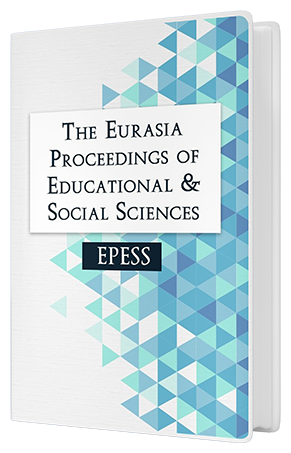Exploring the Sources of Turkish High School Students Chemistry Laboratory Self-Efficacy Beliefs and Motivations
Keywords:
Structural equation modeling, Multivariate analysisAbstract
Self-efficacy is a belief of individuals about their abilities to successfully complete an action. Self-efficacy is defined as the judgments of individuals about themselves on how successful they will be in dealing with difficult situations they may encounter. Self-efficacy beliefs are related to individual judgments about how well the necessary actions can be performed to handle possible situations. These beliefs affect the choice of activities an individual wants to do, the level of the efforts and the performance. Learners with strong self-efficacy beliefs aim at new tasks, show stability in these tasks and achieve ultimate success. This kind of learners’ trust in their abilities when they confront with problems and motivate themselves. Motivation is necessary for individuals to act as cognitively. Therefore, it is very important for teachers knowing in advance of their students' motivation degree and self-efficacy beliefs. In this research it is aimed that the analysis of the relation between self-efficacy beliefs and motivation variables which are highly effective on learning. For numerical analysis we studied 652 high school students in Turkey. The data is collected with chemistry laboratory self-efficacy beliefs scale and chemistry motivation scale. The correlation between the variables are examined using Structural Equation Modeling (SEM). With this study we conclude that there is a positive and significant correlation between chemistry laboratory self-efficacy beliefs and chemistry motivation. This result can be interpreted that the person with high chemistry laboratory self-efficacy has high chemistry motivation.Downloads
Published
Issue
Section
License
Copyright (c) 2018 The Eurasia Proceedings of Educational and Social Sciences

This work is licensed under a Creative Commons Attribution-NonCommercial-ShareAlike 4.0 International License.
The articles may be used for research, teaching, and private study purposes. Any substantial or systematic reproduction, redistribution, reselling, loan, sub-licensing, systematic supply, or distribution in any form to anyone is expressly forbidden. Authors alone are responsible for the contents of their articles. The journal owns the copyright of the articles. The publisher shall not be liable for any loss, actions, claims, proceedings, demand, or costs or damages whatsoever or howsoever caused arising directly or indirectly in connection with or arising out of the use of the research material. All authors are requested to disclose any actual or potential conflict of interest including any financial, personal or other relationships with other people or organizations regarding the submitted work.




